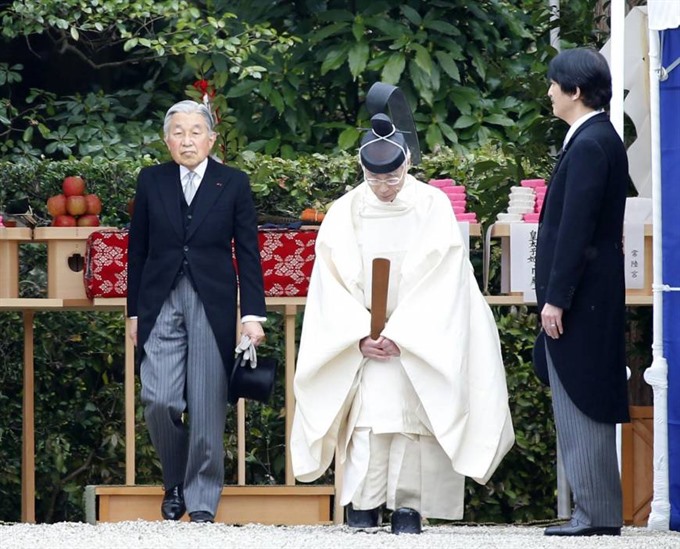 World
World

The Japanese government on Friday approved a one-off Bill allowing ageing Emperor Akihito to step down from the Chrysanthemum Throne in what would be Japan's first abdication in roughly 200 years.
 |
| Emperor Akihito (left) and Prince Akishino (right) visit the tomb of Emperor Jimmu, Japan's first emperor, in Kashihara, Nara Prefecture, in August last year. — KYODO Photo |
TOKYO — The Japanese government on Friday approved a one-off Bill allowing ageing Emperor Akihito to step down from the Chrysanthemum Throne in what would be Japan’s first abdication in roughly 200 years.
Prime Minister Shinzo Abe’s Cabinet signed off on the legislation, Chief Cabinet Secretary Yoshihide Suga told reporters.
It will now be sent to parliament, the Diet, for debate and final approval, with its enactment expected by the end of the current Diet session in mid-June.
The government envisions December 2018, when Akihito turns 85 years old, as a possible timing for his abdication in favour of Crown Prince Naruhito. The nation’s "gengo" era name, which remains in use for the length of an emperor’s reign, will likely change at the start of 2019, Kyodo news agency reported.
The Bill was specifically designed for the current emperor, so as to prevent others easily following suit, Kyodo said.
Reports of Akihito’s desire to retire surprised Japan when they emerged last July. In August he publicly cited age and declining health, which was interpreted as his wish to hand the crown to his eldest son, Crown Prince Naruhito.
But current Japanese law has no provision for abdication, thus requiring politicians to craft legislation to make it possible.
The status of the emperor is highly sensitive in Japan given its 20th century history of war waged in the name of Akihito’s father Hirohito, who died in 1989.
Securing stable succession amid a declining number of imperial family members, highlighted by recent news of the impending engagement of Princess Mako - Akihito’s eldest grandchild - to a commoner, remains a challenge.—AFP




